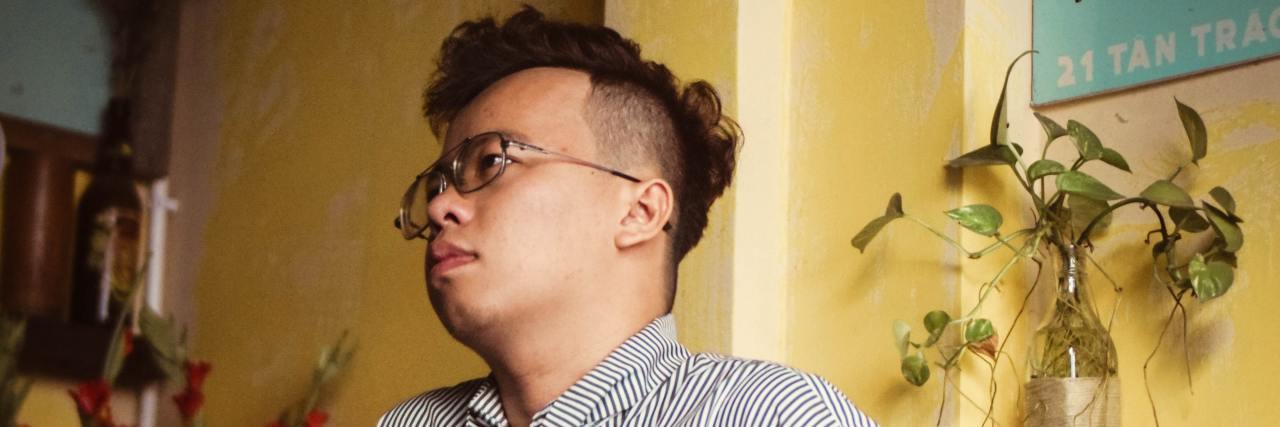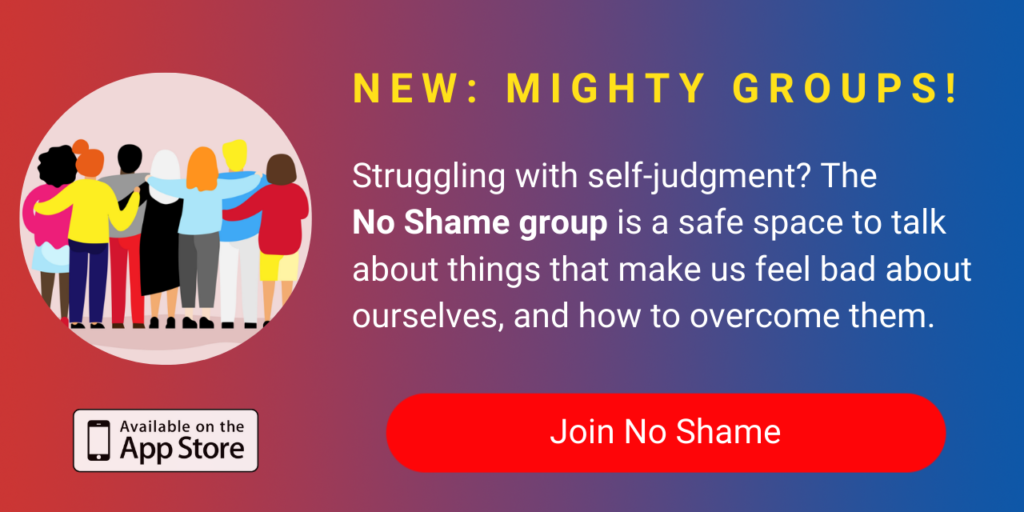The Suppressed Trauma of Being Told I Was Going to Hell for Being Gay
It’s been a long time since I had a therapist, and with bipolar disorder, attention-deficit/hyperactivity disorder (ADHD) and anxiety, going without therapy isn’t necessarily healthy (at least in my personal situation). But I finally found one after several months of looking! I recently had my first appointment with her, and it was the usual preliminary consultation: explaining what I’m experiencing, the medications I’m on, the diagnoses I have, etc. We also went a bit into my history growing up. I had loving parents, supportive siblings and my family always took care of us. But outside of home, I didn’t always have the same healthy environments. My therapist asked me if I had ever experienced any trauma, and my idea of trauma has always been, by default, physical or sexual. But in reality, these are not the only forms of trauma. And as we talked about my past, I realized that I did, in fact, experience trauma.
I went to a private religious middle and high school that I always had my conflicts with: with teachers, students and administrators. I won’t go into the details of my experiences, but the point is that school wasn’t necessarily a healthy or safe environment for me growing up. It reinforced dangerous and harmful ideas, and as much as I tried to keep them out of my head, some of them managed to slip through the cracks, and to this day they remain in my head. But one, in particular, was something that I remember feeling a lot of pain and fear over.
In my sophomore year of high school, I came out as gay to my friends and family. And as much as I tried to keep it on the down-low, especially from the school, they eventually did find out. After that, it seemed like my teachers became more vocal of one thing they deeply believed: I was going to hell.
I tried my best to not let this get to me, but such a powerful and dramatic idea was difficult to ignore. Now, this article is not going to be my forum to discuss the idea of religion and LGBTQIA+ identity, and I would appreciate it if the comments did not become such a forum either. I’m also not going to get into my own ideas of religion because it isn’t really relevant. But I do want to talk about the impact this idea had on me.
I remember very clearly, one night, sitting in my kitchen working on homework. Specifically, I was working on homework that related to this idea of LGBTQIA+ people being automatically guaranteed a place in suffering. And as I was working on it, I was clearly struggling to read and work because these were things that were difficult to process. My mother was in the kitchen, and could tell something was off. She asked me what I was working on, and after I told her, she walked over and stood across the island I was working at. She looked at me and asked me how I felt about it.
Now, I’ve never been very outwardly expressive in my emotions. I never cried in front of people (or really in private either) because I had the warped idea that crying was a sign of weakness. This idea lingers today, and I recognize it is wrong, but again, that is a topic for a different time. But when my mother asked me how I felt about this topic, I immediately felt tears well up, and I couldn’t hold it in.
I sat in my kitchen, my mother there, and books and papers in front of me trying to convince me I was going to suffer for the person I was. And I cried. I cried because I was so terrified of this idea, if it were true. I don’t remember much of the conversation I had with my mom, but I do remember saying this:
“I don’t want to go to hell. I just want to be me.”
Fast-forward to my appointment with my therapist. I had completely suppressed this memory until then. But it came rushing back to me, and I had internalized that more than I would’ve liked to admit. This story, and the context of it, was very traumatic to me. And until now, I never realized how it impacted me then, and how it continues to impact me today.
This trauma, that I never even considered was trauma, was so deeply suppressed and yet alive in my subconscious, that just recollecting it brought back many of the same feelings I had that night in my kitchen. And thinking back on my life over the years between that night and now, I never realized how much I’ve lived my life afraid of that idea. And I never realized how I was letting it warp how I live my life.
Trauma, to say it bluntly, is one of the worst things that a person can experience, and doesn’t just come in one or two forms. It can be just about anything: physical, sexual, verbal, emotional, etc. And this idea that being me was wrong, made me a bad person, and would inevitably lead to me being punished, it was enough to break my walls down and cry.
If I haven’t made it abundantly clear yet: I am not going to explain my own ideas on this controversial idea. Just like every person who has experienced trauma, I don’t owe anyone an explanation of my story. And whether you agree or disagree with the substance of my trauma, I would only ask that you hear my story and learn one thing: trauma is not a one-size-fits-all experience. And trauma is also not one of those things that just happens, then disappears. It can live with you your whole life, and it can have big impacts on the way you live your life. What we need to do, as a society, is recognize people who have experienced trauma, in any form, are not less-than because of things they have lived through.
If you have experienced trauma, I hope you know that no matter what anyone tells you, your feelings about your story are valid, and no one can take away your self-worth. I want you to know that, even if I don’t know you, I am cheering for you. You deserve the life you’ve always dreamed of, and you are a beautiful and valuable member of the human family, and I want you to have all the happiness in the world that you should have. Keep going; I believe in you.
Photo by Trần Toàn on Unsplash


